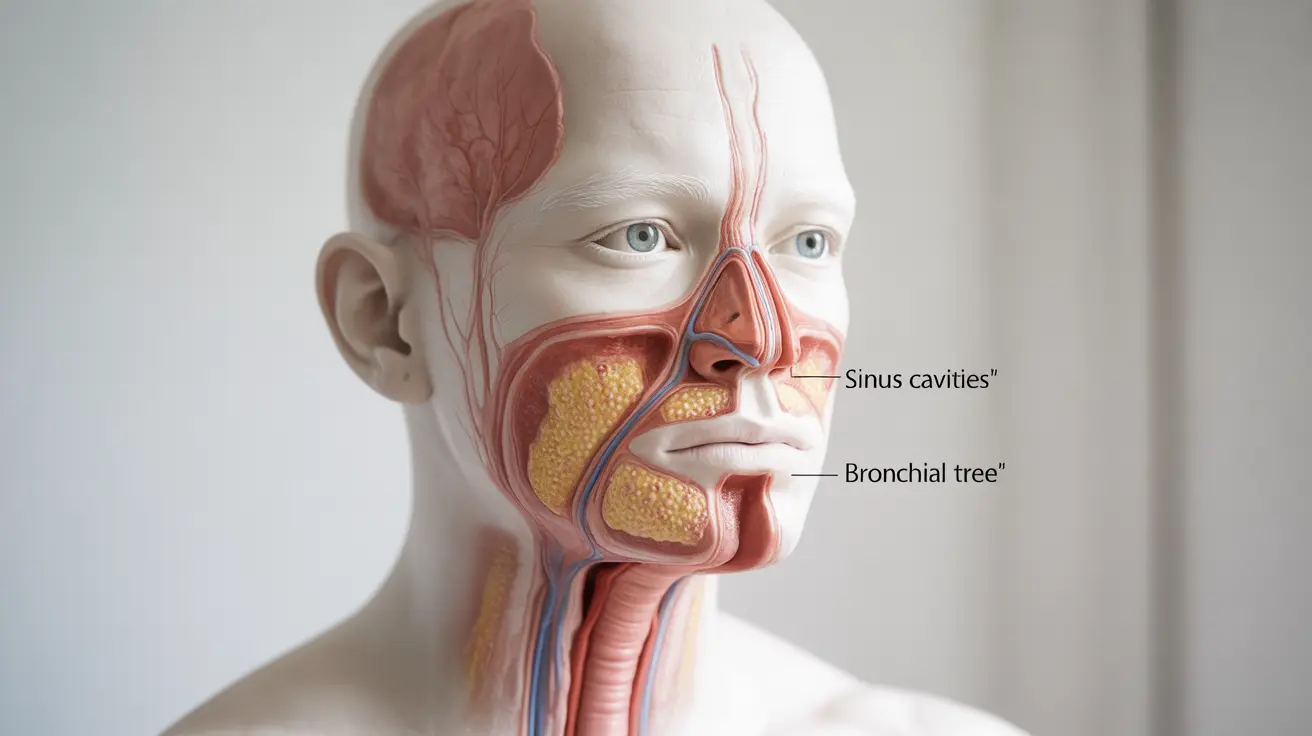If you've been battling cold symptoms for two weeks or longer, you're likely feeling frustrated and concerned about why your illness isn't clearing up. While most common colds typically resolve within 7-10 days, there are several reasons why symptoms might persist longer, and understanding these can help you determine when to seek medical attention.
In this comprehensive guide, we'll explore the potential causes of prolonged cold symptoms, when to be concerned, and what steps you can take to support your recovery.
Common Reasons for Extended Cold Symptoms
Several factors can contribute to cold symptoms lasting longer than expected:
Secondary Infections
When cold symptoms persist, one common cause is the development of a secondary bacterial infection. This can occur when your initial viral infection weakens your immune system, making you more susceptible to bacterial complications such as sinusitis or bronchitis.
Multiple Viral Infections
Sometimes what feels like one long cold might actually be multiple viral infections occurring back-to-back. Your immune system may still be recovering from the first virus when you encounter another, leading to what seems like an extended illness.
Underlying Health Conditions
Prolonged cold symptoms might be indicating an underlying health condition such as:
- Allergies
- Asthma
- Chronic sinusitis
- Immune system disorders
- Seasonal sensitivities
When Your Cold Might Not Be Just a Cold
Extended illness could signal something beyond a common cold. Pay attention to these specific symptoms that might indicate a different condition:
Signs of Bacterial Infection
Watch for these indicators that might suggest a bacterial infection:
- Fever developing after initial cold symptoms
- Thick, colored nasal discharge
- Severe facial pain or pressure
- Worsening symptoms after initial improvement
Other Potential Conditions
Persistent symptoms might indicate:
- COVID-19
- Influenza
- Chronic post-nasal drip
- Acid reflux
- Environmental irritants
Supporting Your Recovery
While dealing with prolonged symptoms, these strategies can help support your healing process:
Immediate Actions
- Stay well-hydrated
- Get adequate rest
- Use a humidifier
- Try saline nasal irrigation
- Consider over-the-counter medications for symptom relief
Lifestyle Support
Focus on these immune-boosting practices:
- Maintain a balanced diet rich in fruits and vegetables
- Get regular, moderate exercise when feeling up to it
- Manage stress levels
- Ensure adequate sleep
- Consider vitamin D and zinc supplements (consult your healthcare provider first)
Frequently Asked Questions
Why have I been sick with cold symptoms for 2 weeks or more?
Extended cold symptoms can result from secondary bacterial infections, multiple consecutive viral infections, or underlying health conditions. Environmental factors, allergies, or a weakened immune system may also contribute to prolonged symptoms.
What could cause my cold symptoms to last longer than the usual 7 to 10 days?
Common causes include developing a bacterial infection following the initial viral infection, experiencing multiple viruses back-to-back, having underlying allergies or asthma, or dealing with environmental irritants that prolong symptoms.
When should I see a doctor if my cold symptoms are still present after two weeks?
Consult a healthcare provider if you experience fever, severe facial pain, thick colored nasal discharge, difficulty breathing, or if symptoms significantly impact your daily activities after two weeks.
Can a lingering cold for two weeks be a sign of a bacterial infection or another illness?
Yes, prolonged symptoms could indicate a bacterial infection, particularly if you notice worsening symptoms after initial improvement, colored nasal discharge, or new onset fever. It might also signal other conditions like allergies, sinusitis, or respiratory infections.
How can I support my immune system to recover faster from a prolonged cold?
Support your immune system by getting adequate rest, staying hydrated, eating a nutritious diet rich in vitamins and minerals, managing stress, and maintaining good sleep habits. Consider immune-supporting supplements after consulting with your healthcare provider.




